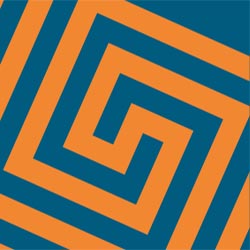A History of Western Society: Printed Page 519
A History of Western Society, Value Edition: Printed Page 534

PRIMARY SOURCE 16.3
Du Châtelet, Foundations of Physics
Gabrielle-Emilie Le Tonnelier de Breteuil, marquise du Châtelet, was a French noblewoman. Frustrated by her limited education as a girl, she befriended philosophes, studied advanced calculus and analytic geometry, and assiduously read the latest scientific publications. Madame du Châtelet translated Newton’s Principia into French and offered her own commentary on his ideas. The passage below is from her Foundations of Physics (1740), an overview of natural philosophy that she wrote for her son’s education. She died of complications of childbirth at the age of forty-two.
 Descartes appeared in that profound night like a star come to illuminate the universe. The revolution that this great man caused in the sciences is surely more useful, and perhaps even more memorable, than that of the greatest empires, one, it can be said, that human reason owes most to Descartes. For it is very much easier to find the truth, when once one is on the track of it, than to leave those of error. The geometry of this great man, his dioptrics, his method, are masterpieces of sagacity that will make his name immortal, and if he was wrong on some points of physics, that was because he was a man, and it is not given to a single man, nor to a single century, to know all.
Descartes appeared in that profound night like a star come to illuminate the universe. The revolution that this great man caused in the sciences is surely more useful, and perhaps even more memorable, than that of the greatest empires, one, it can be said, that human reason owes most to Descartes. For it is very much easier to find the truth, when once one is on the track of it, than to leave those of error. The geometry of this great man, his dioptrics, his method, are masterpieces of sagacity that will make his name immortal, and if he was wrong on some points of physics, that was because he was a man, and it is not given to a single man, nor to a single century, to know all.
We rise to the knowledge of the truth, like those giants who climbed up to the skies by standing on the shoulders of one another.* The Huygenses,† and the Leibnizes learned from Descartes and Galileo, these great men who, so far, are known to you only by name, and with whose works I hope soon to make you acquainted. It is by making the most of the works of Kepler, and using the theorems of Huygens, that M. Newton discovered this universal force spread throughout nature, which makes the planets circle around the Sun, and that operates as gravity on Earth….
Today the systems of Descartes and Newton divide the thinking world, so you should know the one and the other; but so many learned men have taken care to expound and to correct Descartes’ system that it will be easy for you to learn from their works. One of my aims in the first part of this work is to put before your eyes the other part of this great process, to make you acquainted with the system of M. Newton, to show you how far making connections and determining probability are pushed, and how the phenomena are explained by the hypothesis of attraction….
Guard yourself, my son, whichever side you take in this dispute among the philosophers, against the inevitable obstinacy to which the spirit of partisanship carries one: this frame of mind is dangerous on all occasions of life; but it is ridiculous in physics. The search for truth is the only thing in which the love of your country must not prevail, and it is surely very unfortunate that the opinions of Newton and of Descartes have become a sort of national affair. About a book of physics one must ask if it is good, not if the author is English, German, or French. 
*Here, Madame du Châtelet echoes the famous statement of Newton from a 1676 letter to Robert Hooke, an English scientist.
†Christiaan Huygens (1629–1695) was a Dutch astronomer, physicist, and mathematician who observed the correct shape of the rings of Saturn and patented the first pendulum clock.
Source: Emilie Du Châtelet, Selected Philosophical and Scientific Writings, ed. Judith P. Zinsser, trans. Isabelle Bour and Judith P. Zinsser, pp. 118–120. Copyright © 1992 by Cambridge University Press. All rights reserved. Used by permission of University of Chicago Press.
EVALUATE THE EVIDENCE
Du Châtelet, Foundations of Physics
How does Madame du Châtelet explain progress in the physical sciences? What guidance does she offer her son in choosing between Descartes and Newton?
Du Châtelet, Foundations of Physics
What support does this passage provide for the “international” character of the Scientific Revolution? Does this passage suggest any commonalities between the Scientific Revolution and the Enlightenment?